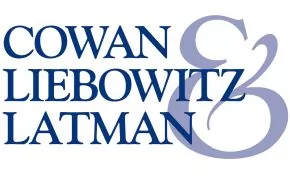In 2020, the spread of Covid-19 gave rise to increased e-commerce and influencer marketing. While influencers may bring your brand viral attention, the strategy also may expose you to legal risk. Companies need to act proactively to protect themselves from rogue influencers and insist on proper disclosures.
Regulators are keeping a watchful eye out for those who lead consumers astray. Influencer marketing, therefore, is ripe for enforcement activity. This article looks at some of the legal developments over the last two years and best practices for risk mitigation around influencer marketing programs.
FTC "Disclosures 101"
In November 2019, the FTC issued its updated guidance Disclosures 101 for Social Media Influencers. The publication reasserted the fundamental tenet of the FTC's Endorsement & Testimonial Guidelines (FTC Guides): influencers must disclose clearly and conspicuously any "material connection" to a brand. The release of Disclosures 101 signaled the agency's continued interest in influencer marketing and its potential to deceive.
The FTC's Disclosures 101 speaks to influencers rather than brands; however, brands cannot escape liability or shift full responsibility to the influencers. Indeed, case law makes it clear that a brand and its agencies have a duty to mandate disclosure best practices. The guide reflects the agency's ongoing concern that consumers are often confused about the underlying motivations for influencer endorsements and testimonials.
What constitutes a material connection is unclear from the guide and could include merely tagging a brand or receiving a sweepstakes entry. Certainly, free products or other perks constitute a material connection and would trigger disclosure requirements. The FTC has been clear that there are many acceptable ways to make disclosures. It has also indicated that regardless of methodology, disclosures should be prominent and avoid abbreviations that consumers may misinterpret.
2019 and 2020: Regulatory Activity
For the last two years, consumer protection regulators have shown a keen interest in targeting deceptive influencer practices.
The year 2019 began with the New York State Attorney General Letitia James announcing a groundbreaking settlement with Devumi LLC over Devumi's peddling of "fake followers" to influencers, celebrities, and brands. The case was the first to declare that selling fake social media influence is illegal. In October 2019, the FTC announced its own settlement with the company and its CEO, including a partially suspended $2.5 million judgment against the company's owner and CEO.
The FTC also settled charges in 2019 against Sunday Riley Modern Skincare and its CEO. The cosmetics firm allegedly posted fake reviews of its products on the Sephora website. In particular, the FTC cited evidence that the company's CEO had directed the company's employees to draft and disseminate the fake reviews. The FTC alleged that the company's actions constituted false advertising and violated the FTC's Endorsement & Testimonial Guidelines. In November 2020, the FTC approved a final consent agreement with the company, with no financial ramifications; however, Sunday Riley's reputation suffered. In addition, some of the FTC's commissioners publicly voiced support for enhanced penalties in future cases.
In fact, the possible trend to enhanced penalties has already begun. In March 2020, the United States District Court in Florida entered a $15.2 million settlement order between the FTC and Teami, LLC, a marketer of teas and skincare products. The FTC alleged that Teami made unsubstantiated health benefit claims in advertising its teas and skincare products. The complaint also listed a host of famous influencers who had failed to include proper disclosures in social media posts (all of those influencers had previously received direct warning letters from the FTC). Additionally, the FTC asserted that the influencers persisted in using disclosures that did not meet the "clear and conspicuous" standard. Their disclosures were hidden under the "more" option of the Instagram posts and not easily viewed.
In September 2020, the National Advertising Division (NAD) of BBB National Programs issued a case report suggesting the need for enhanced attention to disclosures in social media posts. Procter & Gamble was promoting its Bounty paper towels on the popular platform TikTok, where Influencers participated in a dance challenge with music that touted it was time to "clean up my life." Bounty paper towels appeared in all the videos, along with a #BountyPartner hashtag. Unfortunately, when TikTok viewers shared the videos to Instagram, the hashtag vanished. The NAD, concerned about the lack of disclosure, recommended that P&G institute contextualizing text or disclosures that would travel with the videos, regardless of platform.
FTC Public Comment Period
In early 2020, as part of its "systematic review" of all agency guides, the FTC opened a public comment period on the FTC Guides. Originally enacted in 1980, and amended in 2009 to address the digital marketplace, the agency is taking a look at the FTC Guides to determine if they need updating for today's marketplace.
The FTC posed several questions to the public. Among these questions are the following: Are the guides relevant and useful today? Do they benefit consumers? Are they effective in addressing deceptive and unfair practices? How is marketplace compliance? Have the FTC Guides created burdens on businesses? Are disclosures adequate when reviews are aggregated? Are composite reviews based on incentivized reviews misleading? Should the FTC Guides address affiliate links? Do review websites need a different system? Is there anything unique about making disclosures for children?
The FTC's questions create a roadmap for potential regulatory activity in the future. When combined with the shift in power under the Biden administration to the commissioners who seek enhanced penalties, the FTC's public comment queries signal that brands should take the agency's Guides seriously and pursue compliance.
SAG-AFTRA Joins the Conversation
In February 2021, the Screen Actors Guild - American Federation of Television and Radio Artists (SAG-AFTRA) announced that influencers are eligible to join the union. The union considers any content creator who contracts with a brand for a promotional deal, regardless of the number of followers, to be an influencer. Despite this broad definition, the union does have limits around membership eligibility. Eligible content is available on the influencer's or brand's social feeds or websites. The influencer must perform alone with no third-party involvement in the content production and no editing to the content. In addition, the influencer must have a written contract with the brand. The influencer must be utilizing a corporate structure for its business, and the influencer must retain ownership of the content's intellectual property. As of this writing, the brand has no obligation to contribute to the pension or health plans. The influencer must make the contributions through its company, similar to an advertising agency. The industry is watching closely for more guidance from SAG-AFTRA.
Actions a Brand Should Take
What action steps should a brand take to mitigate risk related to influencer marketing? How can a brand ensure that its influencer campaigns do not create legal liability for the brand? How can a company protect itself from an influencer peddling influence that is not real?
- Create a formal process for vetting influencers. Even if collaborating with influencers is not a significant part of your marketing plan, it is likely that you are interacting with influencers in some way. You should consider what kinds of legal and publicity protections your brand needs before working with an influencer.
- Create uniform contractual obligations. Using the influencer's contract is not preferred. Instead, your brand should develop its own template contract. Any contract should include tangible benchmarks for performance, strong warranties and indemnities clauses, and favorable termination rights. Brands might also consider whether they will restrict their influencer programs to non-union influencers.
- Consider force majeure and termination rights. When drafting your contracts, include a force majeure clause that would allow you to terminate your influencer marketing obligations based on a well-structured force majeure clause that refers to the pandemic. Include termination rights in your discretion if you feel the campaign needs to shift focus to reach consumers in a different way in these uncertain times.
- Disseminate your own legal guidelines concerning influencer and employee disclosures in social media. These guidelines should be platform specific. In instances where there is no contract in place, such guidelines are crucial for brand protection. Also circulate the FTC's guidance as exhibits to influencer contracts.
- Remember that you are responsible for what the influencer says about your products and services. Provide guidance about what kinds of claims are appropriate and have substantiation. Warn clearly about the kinds of claims that may be problematic. If you are marketing any item that affects public health and wellness, pay particular attention to what product claims influencers are making and whether they have properly disclosed their material connections to your brand. Even if your contract has indemnification obligations, can the influencer, as a practical matter, stand behind them?
- Consider training programs. These can be in-person seminars or an onboarding training video that all influencers who work with the brand must watch.
- Monitor your vendors; their actions create legal liability for you. Review the brand's advertising, marketing, and public relations agency agreements. You will want to ensure that your agencies are aligned on their responsibilities in recruiting influencers and discussing the brand in social media.
- Remember, your employees are influencers too. Create and disseminate procedures and guidelines for all internal stakeholders who post on social media. These documents might be an addendum to your employee manual. They might suggest or require the use of certain hashtags that provide the appropriate FTC disclosures.
- Develop active monitoring programs. The FTC has made it clear that you have the responsibility not only to make policies, but to ensure that your brand guidelines are being followed. Brands who engage in active monitoring have been able to mitigate legal risk.
- Develop best practices for managing non-compliant influencers and vendors. Work with your legal team to develop a plan for warning and ultimately separating from influencers, employees, and agencies who are not adhering to legal requirements and brand standards.
- Consider the role of influencer marketing on any public offering. Casper, an online seller of mattresses, addressed the potential legal risk of using influencers when it launched its initial public offering in January 2020. The company included an "influencer disclosure" in the company's S-1 filing (this filing identifies a company's risk factors that could cause its stock to decline). Casper acknowledged that its use of influencer marketing created a risk for the company's reputation and stock price because influencers might fail to make legally required disclosures or fail to make them properly.
- Prioritize your approach to risk mitigation. For companies who are on budgets during these economically uncertain times, consider a "triage" approach to risk mitigation. Top on the list should be guidelines and contracts, followed by even a simple monitoring and take-down program. The gold standard for legal protection combines these elements.
Originally Published on PLI PLUS.
The content of this article is intended to provide a general guide to the subject matter. Specialist advice should be sought about your specific circumstances.

